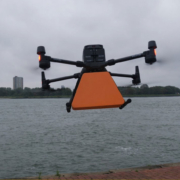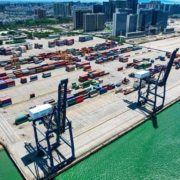Automation of the airline industry
The airline industry has been forced to digitize and automate each of its processes, to reduce physical contact, to protect those involved, preventing the spread of covid-19, and, in turn, improve the user experience and boost efficiency.
SITA, an international telecommunications company that provides technology services to companies in the aeronautical industry, says that the fall in demand for this industry in 2020 has forced them to focus on new cost efficiencies.
“In addition to the pressure, airlines and airports had to quickly incorporate new sanitary measures, such as contactless processing of passengers and the management of health information and new protocols, including PCR tests in many destinations,” said David Lavorel, CEO of SITA Airports and Borders.
To solve these challenges, the aviation industry turned to technology and, in many cases, changed the investment priorities they had set in 2020.
In this sense, many airports and airlines are interested in investing in biometric technology, implementing automated boarding gates, and guaranteeing a check-in process without physical contact, as well as self-service baggage delivery.
“Most airlines plan to send real-time notifications to passengers directly to their mobile devices about the status of their bags, and they also plan to provide real-time baggage tracking information to staff,” SITA noted.
It is estimated that by the year 2023, all essential customer service services will be without physical contact, from reservation to arrival, including delayed baggage reporting.
Source: Aviación 21.










Leave a Reply
Want to join the discussion?Feel free to contribute!